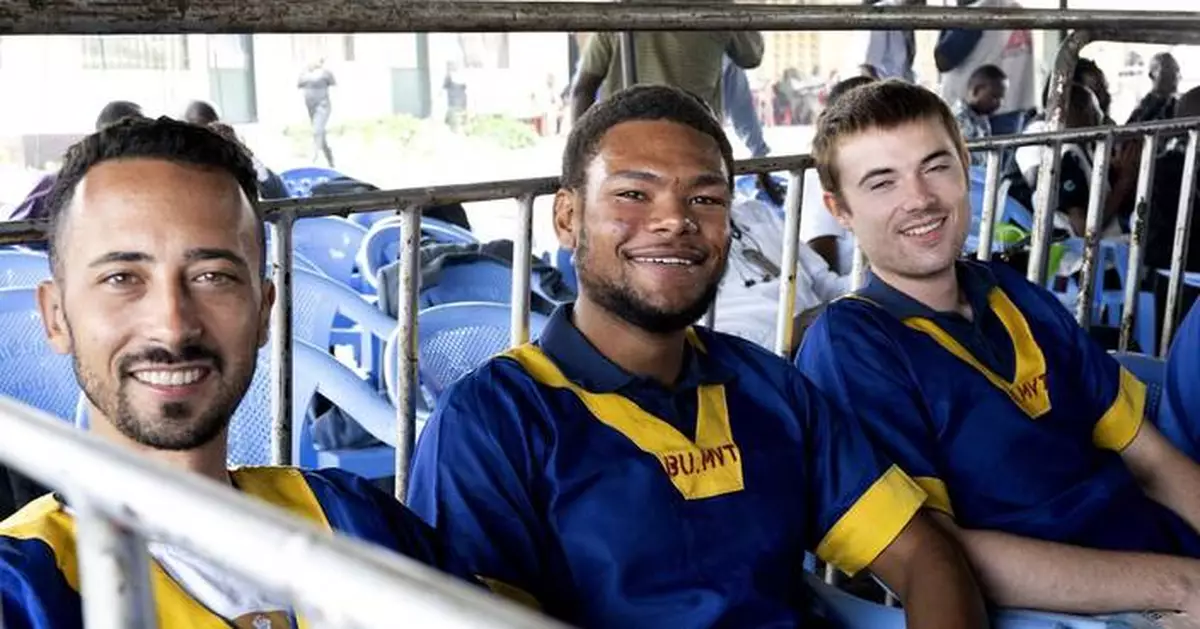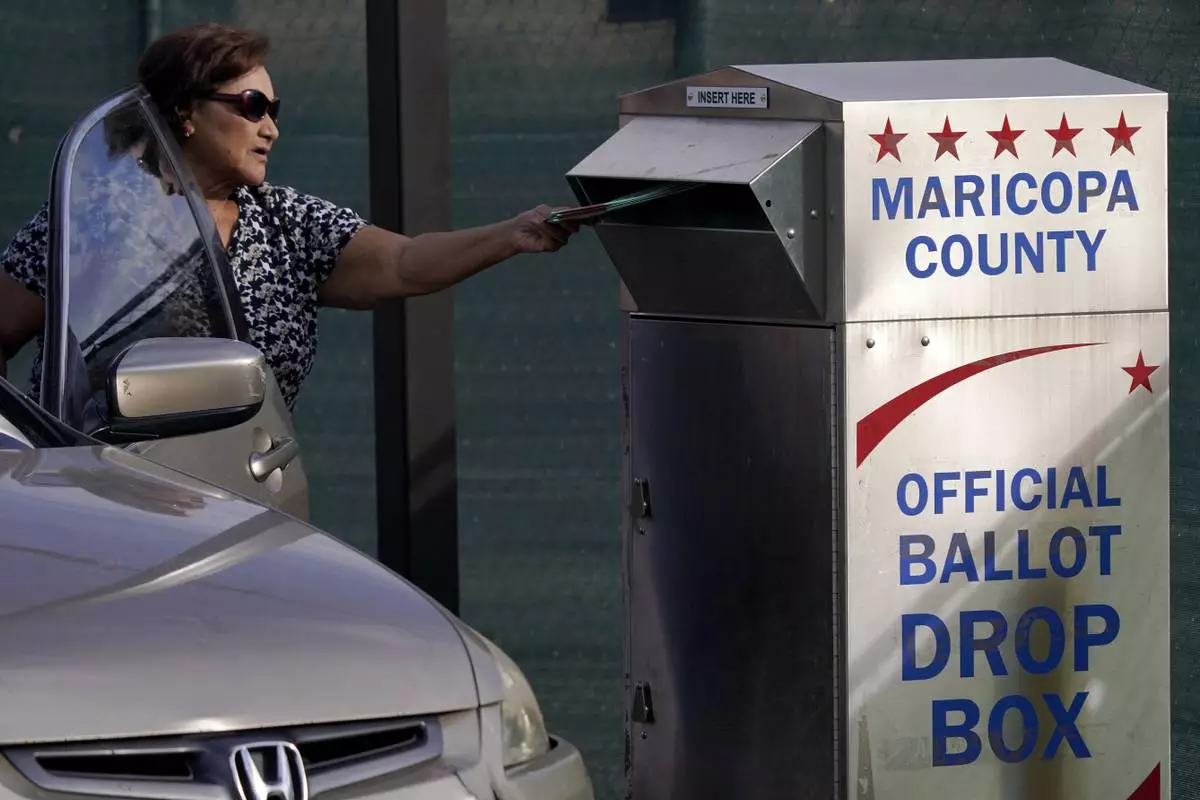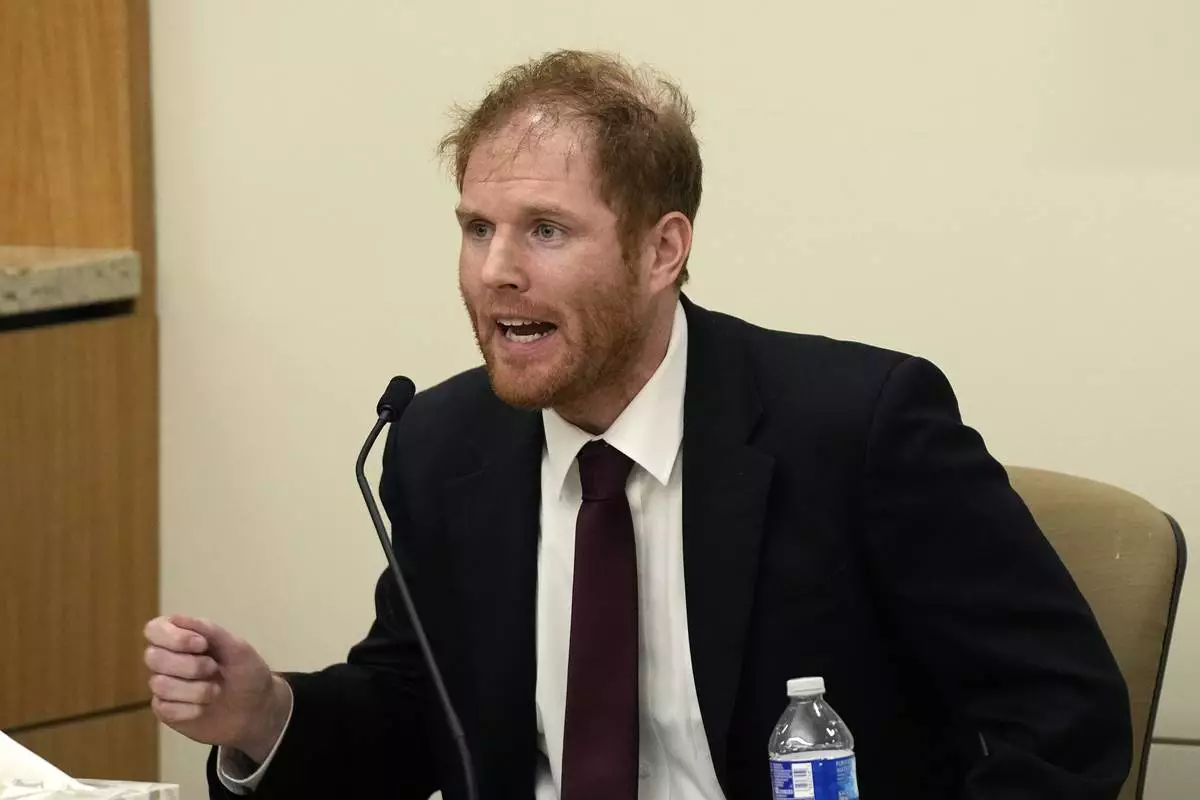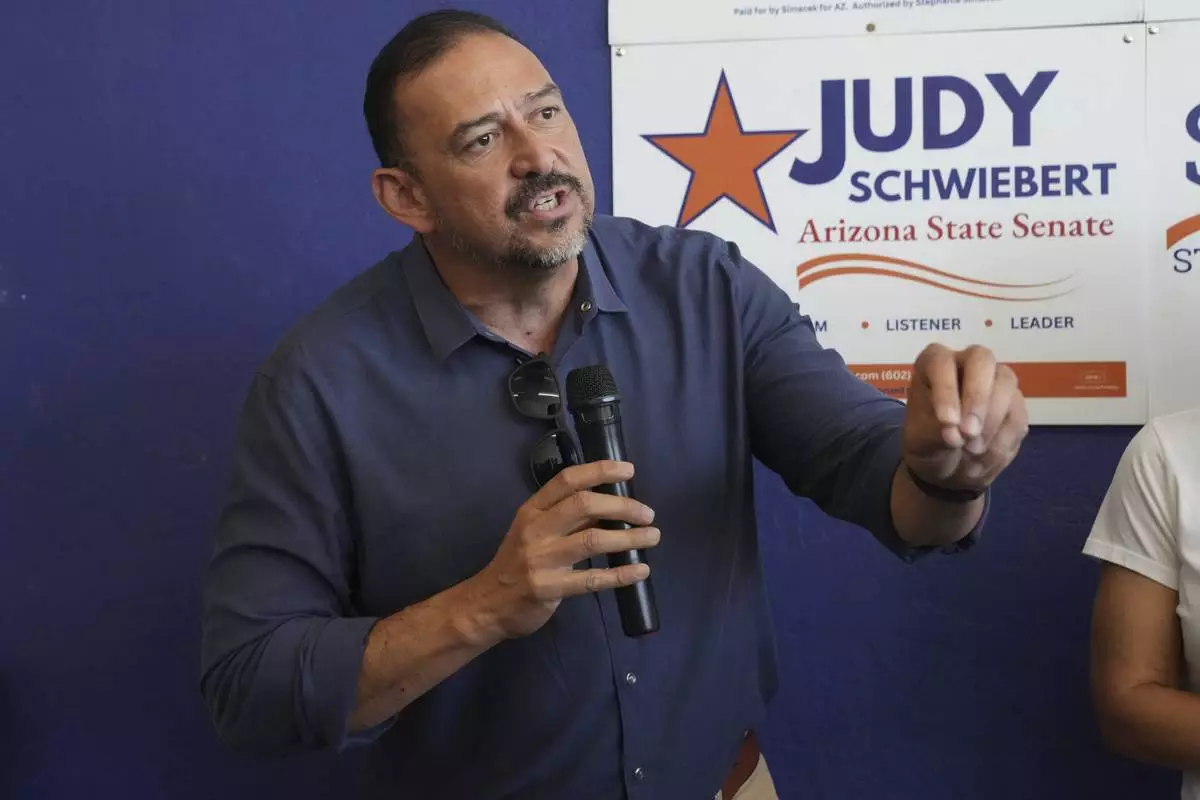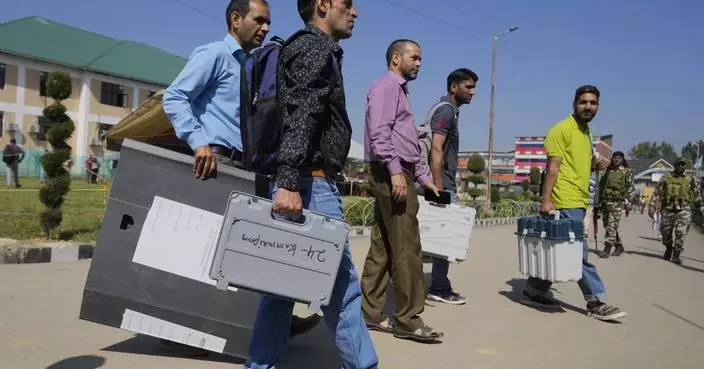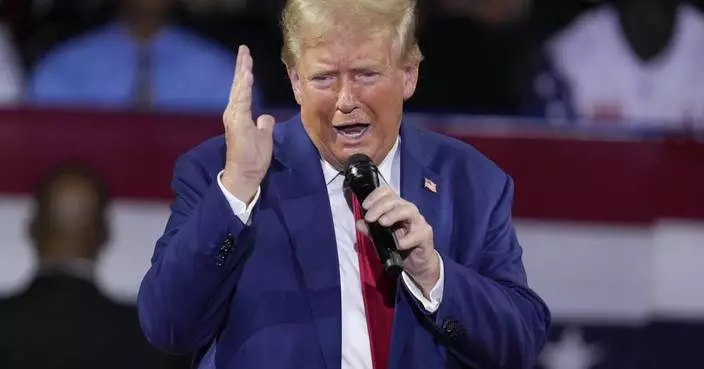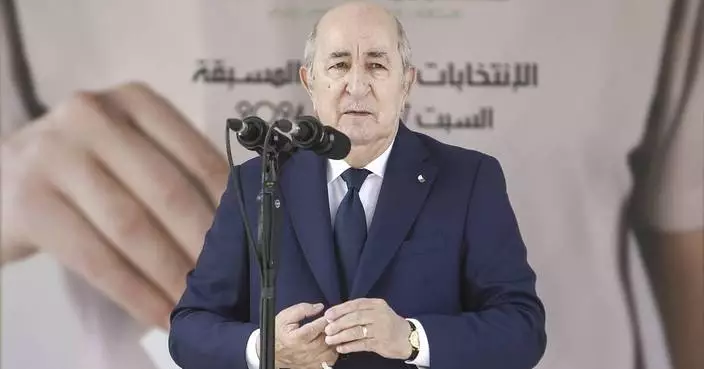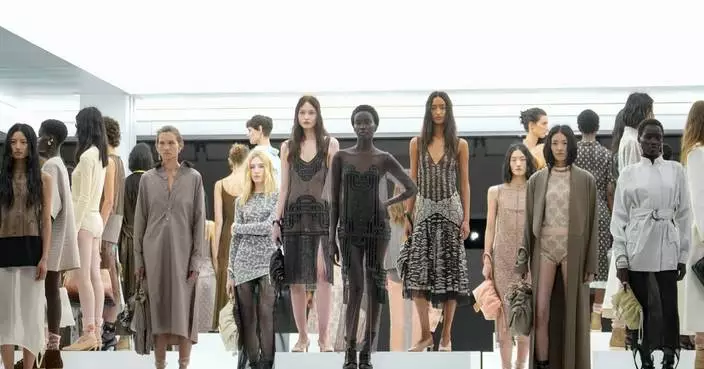KINSHASA, Congo (AP) — A military court in Congo, one of Africa’s largest countries, has convicted three Americans and dozens of others of taking part in a coup attempt and imposed “the harshest penalty, that of death.”
The court convicted the 37 defendants, including the three Americans and imposed the death penalty in a verdict delivered by presiding judge Maj. Freddy Ehuma at an open-air military court proceeding.
The defendants, a majority of them Congolese but also including a Briton, a Belgian and a Canadian, were charged with terrorism, murder, criminal association and illegal possession of weapons, among other charges.
The lawyer who defended the six foreigners said they would appeal the verdicts.
The U.S. State Department strongly discourages travel to Congo, warning of violent crime and civil unrest. Here's how the three Americans ended up in the middle of the coup attempt.
In Congo's capital Kinshasa, a ragtag group including three Americans tried to unseat the country's President Felix Tshisekedi. They were led by a little-known opposition figure, Christian Malanga, who sold used cars and dabbled in gold mining before persuading his Utah-born son to join in the foiled coup.
The coup attempt began at the Kinshasa residence of Tshisekedi’s close ally, Vital Kamerhe, a federal legislator and a candidate for Speaker of the National Assembly of Congo. His guards killed some of the attackers, officials said.
Christian Malanga, meanwhile, was live-streaming video from the presidential palace in which he is seen surrounded by several armed men in military uniforms wandering around in the middle of the night. He was later killed while resisting arrest, Congolese authorities said.
Dozens, including Malanga's son and two other Americans, were arrested and brought to a high-security military prison in Kinshasa. Family members said the young men have been sleeping on the floor, struggling with health issues and have had to pay for food and hygiene products.
Malanga, who was born in Kinshasa, had described himself as a refugee who thrived after settling in the U.S. with his family in the 1990s. He said he became a leader of a Congolese opposition political party and met high-level officials in Washington and the Vatican. He also described himself as a devoted husband and father of eight.
Court records and interviews paint another picture. In 2001, the year he turned 18, Malanga was convicted in Utah of assault with a firearm, which resulted in a 30-day jail sentence and three years of probation. That same year, he was charged with domestic violence assault in one incident and battery and disturbing the peace in another, but he pleaded not guilty and all counts in both cases were dismissed.
In 2004, he was charged with domestic violence with threat of using a dangerous weapon, but he pleaded not guilty and the charges were again dismissed. Since 2004, records show several cases related to a custody dispute and a child support dispute.
The three imprisoned Americans are Malanga’s 21-year-old son Marcel Malanga, Tyler Thompson Jr., 21, who flew to Africa from Utah with the younger Malanga for what his family believed was a free vacation, and Benjamin Reuben Zalman-Polun, 36, who is reported to have known Christian Malanga through a gold mining company.
Marcel Malanga is a U.S. citizen and was born in Utah. He told the court his father had threatened to kill him and Thompson if they did not take part in the attack.
His mother, Brittney Sawyer, has said her son is innocent and was simply following his father, who considered himself president of a shadow government in exile.
Thompson was his high school friend and football teammate in the Salt Lake City suburb of West Jordan. He was the only former teammate to accept Marcel Malanga's invitation to travel to Congo, according to several other players who told The Associated Press they had been invited to what the younger Malanga pitched interchangeably as a family vacation or as a service trip to build wells. Other teammates alleged that Marcel Malanga had offered up to $100,000 to join him on a “security job” in Congo.
Thompson’s family maintains he had no knowledge of the elder Malanga’s intentions, no plans for political activism and didn’t even plan to enter Congo. He and the Malangas were meant to travel only to South Africa and Eswatini, his stepmother, Miranda Thompson, said.
All of those convicted have five days to appeal the verdict. Richard Bondo, the lawyer who defended the Americans and three other foreigners, said he plans to do so.
Congo reinstated the death penalty earlier this year, lifting a more than two-decade-old moratorium, as authorities struggle to curb violence and militant attacks in the country. The men convicted in the coup attempt would likely be executed by firing squad.
The U.S. State Department has not declared the Americans wrongfully detained, making it unlikely that U.S. officials would try to negotiate their return.
Pronczuk reported from Dakar, Senegal, and Schoenbaum from Salt Lake City.
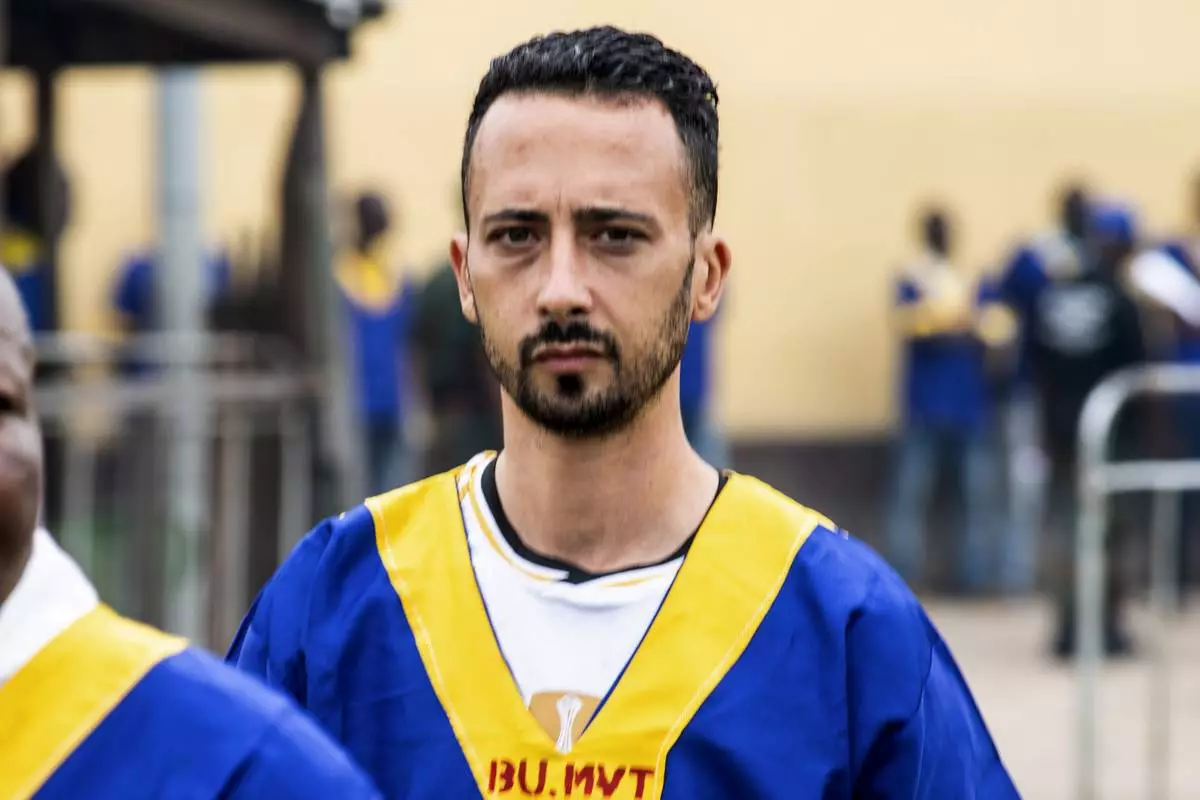
CORRECTS ID: American Benjamin Reuben Zalman-Polun arrives for a court verdict in Congo, Kinshasa, Friday Sept .13, 2024, on charges of taking part in a coup attempt in May 2024. (AP Photo/Samy Ntumba Shambuyi)
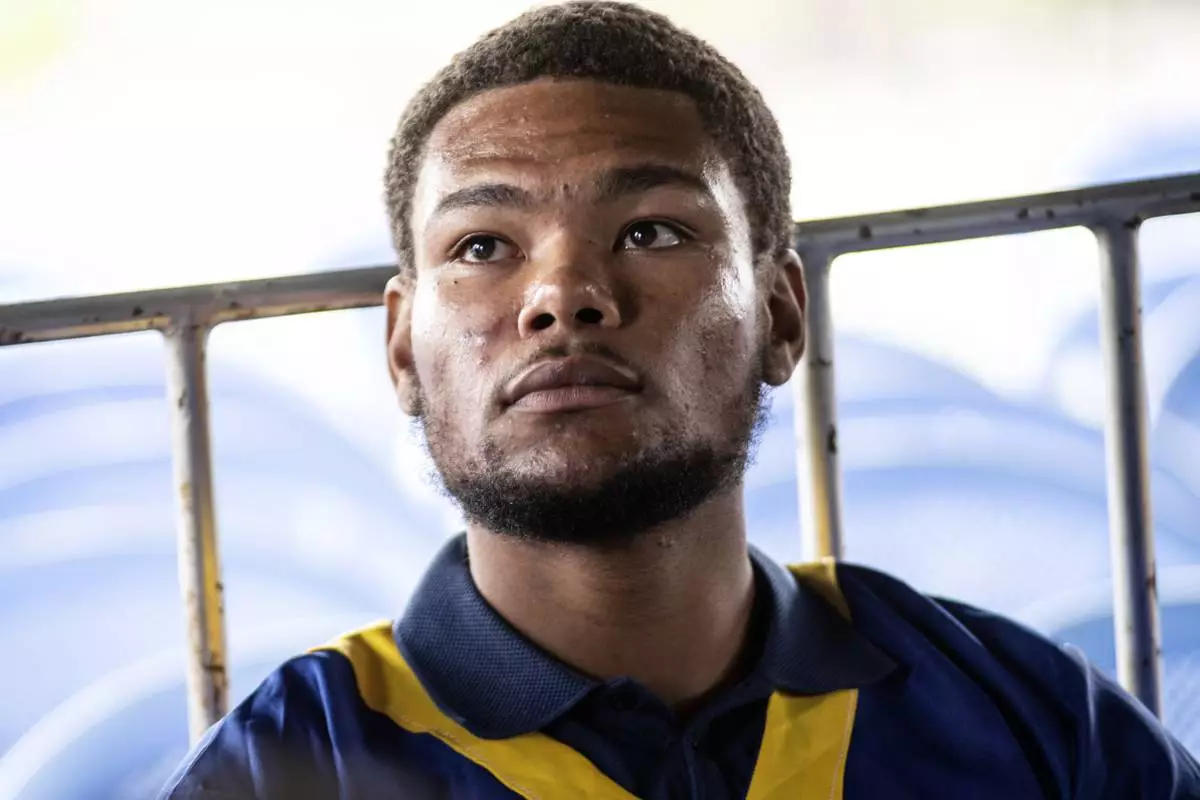
America Marcel Malanga attends a court verdict in Congo, Kinshasa, Friday Sept .13, 2024, on charges of taking part in a coup attempt in May 2024. (AP Photo/Samy Ntumba Shambuyi)
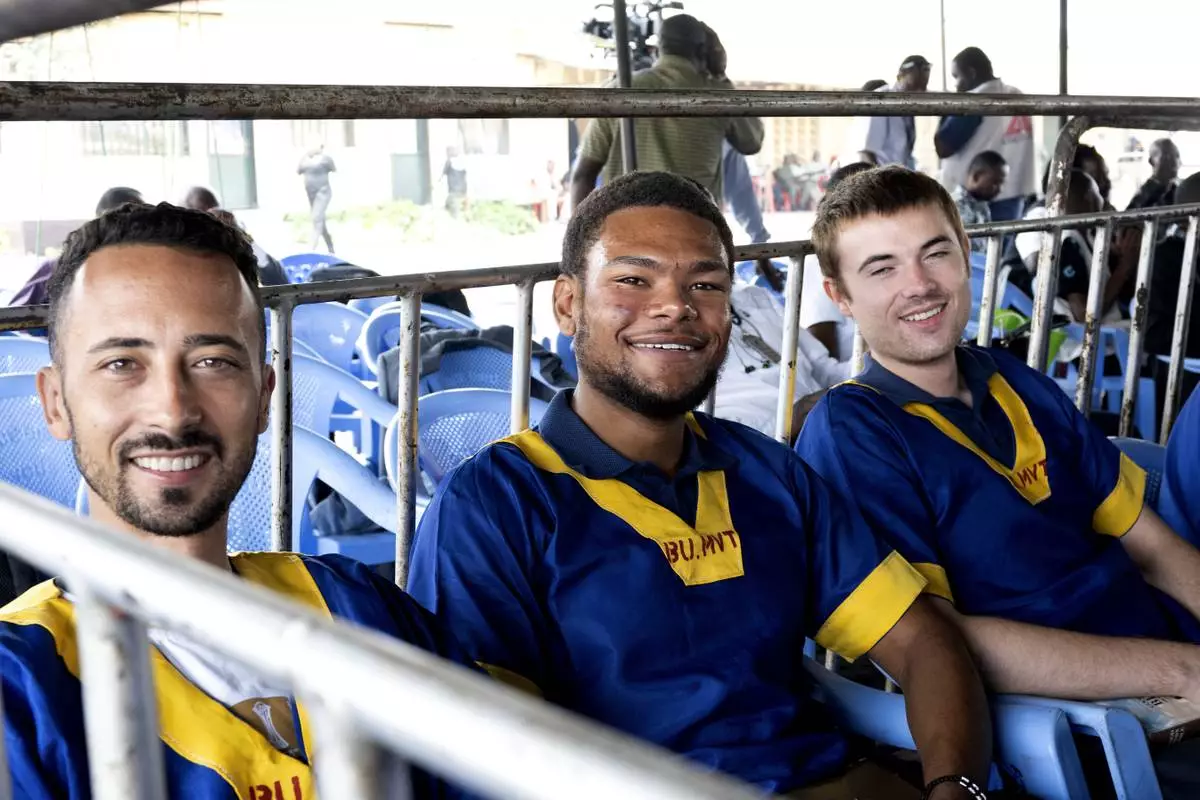
CORRECTS ID: Benjamin Reuben Zalman-Polun, left, Marcel Malanga and Tyler Thompson, all American citizens, attend a court verdict in Congo, Kinshasa, Friday, Sept. 13, 2024, on charges of taking part in a coup attempt in May 2024. (AP Photo/Samy Ntumba Shambuyi)


